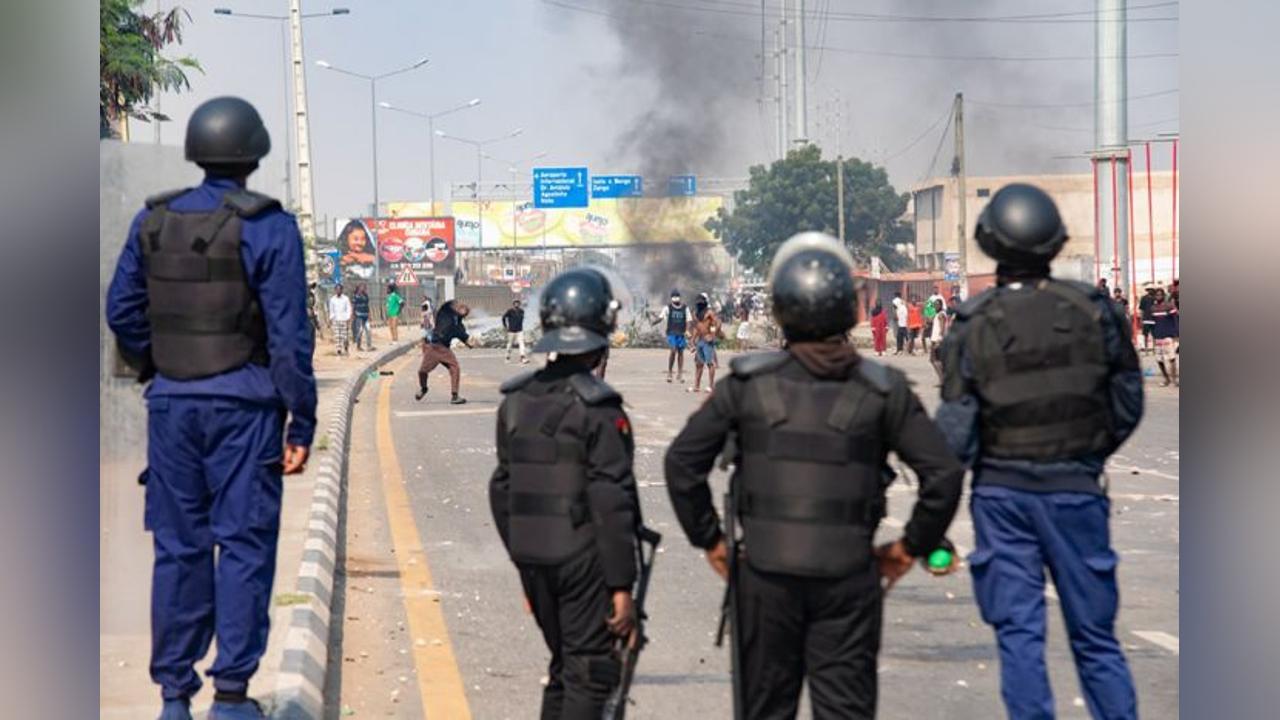Africa-Press – Angola. Between July 28th and 30th, Luanda experienced violent protests against rising fuel prices, resulting in 30 deaths, over 200 injuries, and 1,500 arrests. The social tension may be linked to a worrisome statistic for researchers: according to the National Institute of Statistics, approximately one million young people in the capital, and three million across the country, are neither studying nor working.
Economist and researcher at the Center for Scientific Research Studies at the Catholic University of Angola, Francisco Miguel Paulo, explains that official figures from the National Institute of Statistics also consider those working in the informal market as employed. However, he emphasizes, there are young people who can’t even find this type of precarious employment. “These young people don’t have informal employment, meaning they don’t even have the money to start a small business. They don’t work or study, not for lack of desire, but because there are no real opportunities to work or study,” he states.
The economist adds that “it’s not easy to find a place to study in Luanda or in Angola in general” and laments that “these young people are practically marginalized from all government social and economic policies.” He even states: “I don’t know of any government program or policy that addresses this group of young people aged 15 to 24 who neither work nor study. But it can be done, despite the crisis. There’s still money for it. It’s possible to employ these young people.”
For the economist, the solution lies in vocational training, leveraging existing resources. “We have the Ministry of Employment and Social Security, public schools and vocational training centers located in every municipality in the country. Private companies are available to provide training in bricklaying, electrical work, plumbing, and simple things that help young people become employable. We need to train these young people, and there’s funding for that. But whether there’s political will is another matter.”
The researcher also warns about the burden of the informal economy: “Of Angola’s 12 million workforce, 10 million are in the informal market, only 2 million are in the formal market. Of these 10 million, a large portion are farmers. In fact, 50% of the informal workforce are farmers.” This reality, he warns, raises serious problems for the future: “They don’t pay social security, and when they’re tired at 60, how do we resolve this situation? The government could very well have social security cover this, as it did with demobilized former military personnel. But unfortunately, there are few social programs with any impact on society.”
Youth inactivity, he warns, has a direct impact on the country’s security and stability. “If nothing is done, what happened on July 28th and 29th will happen again and again, because these young people have nothing to lose, they no longer have hope, they only have their lives to lose, and many of them are going hungry,” he explains. “Sometimes they need 10,000, 5,000 kwanzas to start businesses, and they don’t even have that amount. It’s a source of insecurity for the entire country, because nothing justifies vandalism, but let’s put ourselves in their shoes: what hope do they have?”
According to the economist, this situation cannot be contained solely through police repression. “If the government continues to call them vandals and fails to understand their situation, no police or military personnel will be able to combat them. There are a million of them in Luanda alone. Across the country, there are about three million. We don’t want that. We want them to recognize that we have indeed failed socially. It is possible to do this, and there is money to do so,” he recalls.
Following the arrests of association leaders, which authorities justified as security measures, the economist believes the main lesson to be learned is “to show empathy for what young people are facing. Young people without jobs, without school… we need to put ourselves in their shoes, recognize and resolve this situation.”
To this end, he advocates simple, quickly implemented measures: “There are vocational training centers in the country; more centers should be created. In one or two weeks, we can register all these young people, and it should be done at the municipal level, because at the central level, there’s a lot of bureaucracy; nothing works. Municipalities should be given the authority to register young people in this situation, provide them with training, kits, and, in the case of those in the informal market, formalize them.”
Francisco Miguel Paulo also points out that informality can meet immediate needs, but it doesn’t guarantee the future: “In the short term, informality can cover their needs, but what about later? Tomorrow, when they retire, how will they live, since they won’t be able to contribute to social security? We have to think about that.”
Despite the worrying context, the economist remains optimistic: “In the short term, it’s possible to resolve this. We just need to keep them busy, give them hope that it’s possible. They are an engine for development. The country needs to develop and it needs the workforce. The best resource the country can have is its workforce, but for that to happen, it must be qualified and employable.”
For More News And Analysis About Angola Follow Africa-Press






